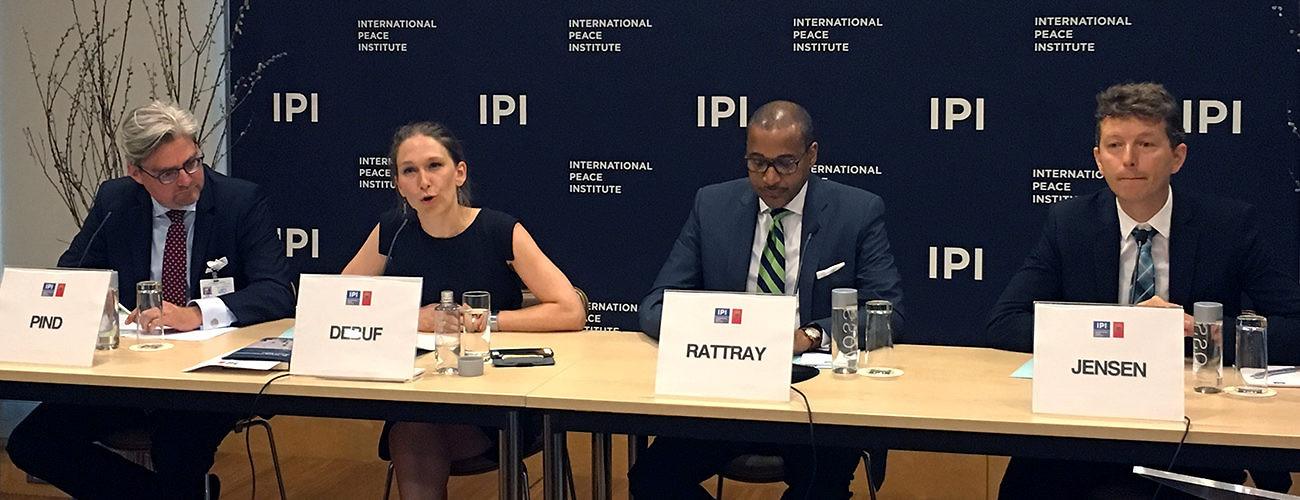An IPI forum took up the question of whether the International Human Rights system was something imposed on the Global South by the Global North, or if it had its origins in the South.
The varying opinions regarding the geographical home of human rights, as well as, the “lack of trust and unity between the different regional constituencies on human rights” is discourse that has always been “bubbling below the surface in the United Nations,” declared Mogens Lykketoft, President of the United Nations General Assembly.
Mr. Lykketoft further explained how these beliefs are particularly evident around the ideas that “the Global North only cares about civil and political rights and the Global South only cares about economics, social, and cultural rights.” Such assumptions, he said, are “incorrect in both cases.”
Mr. Lykketoft’s remarks we part of a June 13, 2016 event, “How the Global South Shaped the International Human Rights System,” which brought together expert panelists to discuss the origins of the contemporary human rights system, and how a comprehensive historical reading of these origins may affect the international community’s collective will to promote human rights as the cornerstone of sustainable development and lasting peace.
While many discussions on human rights have been marred by the perception that the human rights project is a Western project conceived and pushed by Western states—sometimes against the will of the Global South —Steven L.B. Jensen, Senior Researcher at the Danish Institute for Human Rights, provided a counter argument to this claim. Discussing the origins of the contemporary human rights system, he argued that 1962 was a turning point in human rights work for the following reasons:
- Jamaica became independent in August 1962 and joined the United Nations in September.
- The human rights project was redefined around issues of race and religion.
- Because of decolonization and the opening up of the UN, there was a really unique role of the UN as a forum for finding universal solutions and promoting the universality of human rights.
Mr. Jensen often referred to his recently published study—The Making of International Human Rights: The 1960s, Decolonization, and the Reconstruction of Global Values—while explaining that much of the international human rights system that we see today was constructed and shaped by states from the Global South, with Ghana, Jamaica, Liberia and the Philippines taking on a lead role.
Courtenay Rattray, Permanent Representative of Jamaica to the UN, asked, “who would have thought that the Global South, so often criticized for taking anti-human rights stances has, in fact, played a pivotal role in pressing the developed world to accept universal human rights as a matter deserving full and proper international treatment and attention?” He also referenced Mr. Jensen’s book while examining the differing perceptions regarding the origins of human rights when he said, “events that we believe may have originated in one local, may in fact had its origins and growth elsewhere.”
Søren Pind, Minister of Justice in Denmark, concluded the discussion by declaring that respect for human rights stemmed from universal aspirations. “Individuals everywhere want the same thing: to be able to speak freely, to practice their own religion or to abstain from religious belief, to feel that a person is not threatened by the state, to know that they will not be tortured or detained without a charge, and that if charged, they will have a fair trial,” he said. None of the aforementioned aspirations should be “dependent upon culture, religion, or economic development.”
The event was co-hosted with the Ministry of Foreign Affairs of Denmark.
Els Debuf, IPI Senior Advisor on Humanitarian Affairs, moderated the discussion.








